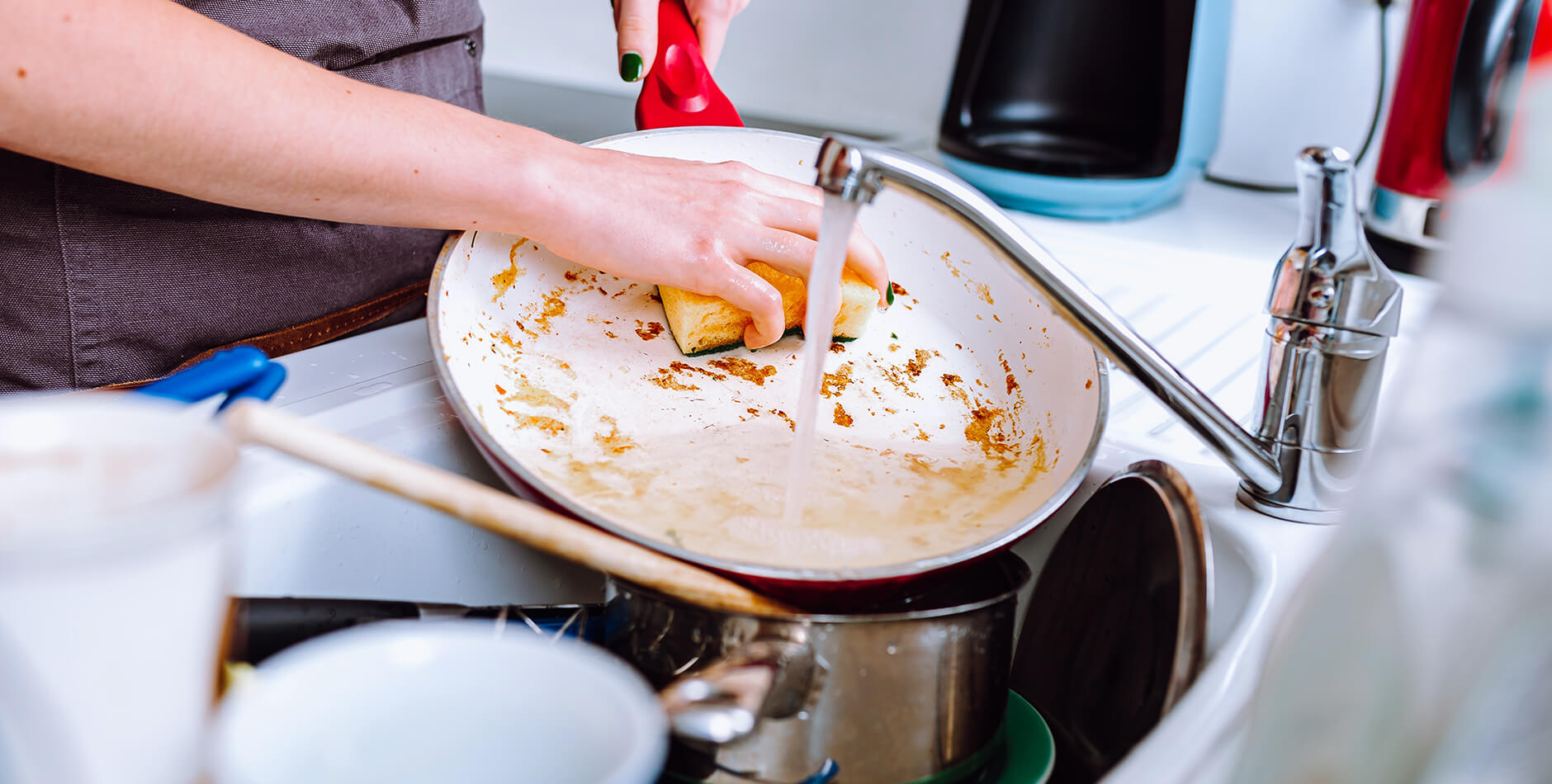
A sink-full of dirty, stale utensils is an unpleasant sight. However, washing a sink-full of dishes is a rather mighty task that no one willingly takes up. Even if someone takes up this task, there comes a preference of using a certain type of dishwashing detergent. Is it a dishwashing soap bar or dishwashing gel that they will have to dip their hands in?
Truth be told, we have seen dishwashing soaps sitting dominantly beside the sink for the longest time. But, the good news is that with consumers’ awareness on utility and safety of using dishwashing detergents the markets have evolved with effective alternatives, like dishwashing liquid detergents and dishwashing gels. In the current times, dishwashing gels have gained popularity for ease of use, cost effectiveness and hygiene quotient.
So here’s a comparative study between dishwashing bars and dishwashing gel.
Efficacy: In terms of efficacy, dishwash gel can effectively and easily remove oil and grease from utensils, pots and pans in comparison to a dishwash soap. Gels loosen the microbial contaminants in the utensils and gives a thorough clean. Dishwash soaps makes the cleaning process a little complicated given its reputation of germ accumulation if not dried properly.
Germ and bacterial accumulation: Dishwashing bar soaps, when wet, tend to accumulate germ on the surface, which heightens the chance of transfer of bacteria/germs from one user to another and also on to our utensils. This unhealthy aspect can be fully stopped by shifting to a dishwashing gel that comes packed in a bottle and ensures no-contact product use between users.
Slimy Tops: When wet and if not properly dried, dishwash bars gets mushy and slimy. This leads to considerable wastage of the product. On the other hand, a bottle of dishwash gel totally eliminates this problem, rather guarantees cost-effectiveness with only a few drops to be used for many utensils.
High pH level: Chemical ingredients in a dishwashing soap bar give the products a higher pH level in comparison to liquid dishwashing soaps, which are milder with a water base.
Not suitable for delicate cutleries: Dishwash soaps should not be used on delicate cutleries. Abrasive texture of dishwash bars can scratch the surface and actual texture of glassware. Whereas, dishwashing gels with its liquid base are gentler on such delicate surfaces.
Safe on skin: Dishwash bars have strong chemicals like phosphates and carbonates. With regular use of dishwashing bar soaps, our skin gets repeatedly and directly exposed to these harmful chemicals, which in turn robs our skin of the natural moisture balance and makes our skin dry. On the other hand, dishwashing gel have moisturizing agents as one of the ingredients, which makes it less harsh on our skin.
Overall, dishwashing gel wins the deal in term of efficacy, utility and cost effectiveness. If you are willing to shift from dishwashing soaps to dishwashing gel, you can well start you journey with PUER Dishwashing Gel. This dishwashing gel is natural and equally effective in comparison to its chemical-heavy counterparts. With complete natural formulation, it is safe for both your utensils and skin. With this dishwashing gel in your pantry, you might just willingly take up the chore of washing a sink full of dishes with just a spoonful of PUER Dishwashing Gel. Added delight of a mild citrus fragrance of the gel and getting to see squeaky clean dishes in seconds will definitely make you proud and happy.